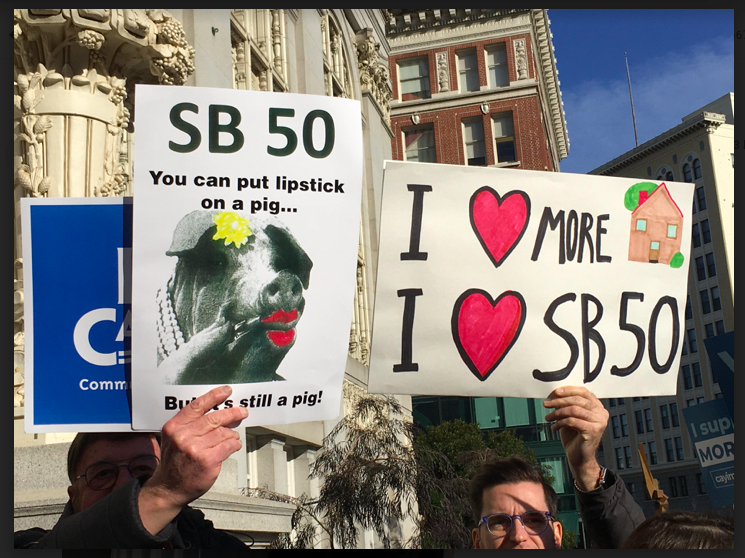The SF Planning Commission is taking the first step toward the adoption of a new Housing Element, the blueprint for the city’s future policy on what most agree is among the most pressing issues facing San Francisco.
The Planning Department has drafted a new draft document, which you can read here, and the commission will hold a hearing Thursday/8 on the Environmental Impact Report.
For decades, cities like San Francisco have issued new housing elements every ten years, and for decades they haven’t made much difference. The last version, approved in 2014, called for far more affordable housing than the city has funded and approved. Meanwhile, the city has authorized more luxury housing than the state says it needs.

So now there’s an EIR that is supposed to examine the impacts of the plan—but the plan, which is still based on the city complying with the state’s housing mandates, is completely unreliable.
I don’t see how anyone can study the impact of adding 80,000 new housing units to the city, 46,000 of them at below market rate, in the current world of political and financial reality.
The affordable housing would cost $19 billion (at today’s prices, which could easily go up). If the city relies on for-profit developers to provide those units through inclusionary housing, the city would have to allow—and developers would have to build—166,000 new units, 120,000 of them market-rate, over the next eight years.
In other words, the state’s housing mandates for cities in the Bay Area, including San Francisco, are a fantasy.
There’s no way this is ever going to happen, not without massive federal and state support and profound changes to the built and unbuilt environment in the city.
The Draft EIR doesn’t even begin to scratch the surface of what the impacts of adding 160,000 new units, including at current rates enough housing for 252,000 more rich people, whose impact on the city would be immense.
All of the laudable goals of the new housing element, which talks about equity, historical racism, and, amazingly for San Francisco, a fundamental right to housing, become close to impossible under a scenario where private developers build 120,000 new luxury housing units, which would almost certainly require the demolition of vast swaths of existing vulnerable neighborhoods.
The housing plan calls for the city to advocate for a change in the Ellis Act and the Costa Hawkins Act, which is desperately needed—and yet, state Sen. Scott Wiener has never once said that the price for approving all these pro-developer bills is repeal of those laws. Sup. Rafael Mandelman pointed out at a rally against yet another Ellis Act eviction that the state won’t take action until someone powerful in the Legislature makes this the top priority, makes it the most important issue, and forces other reluctant Democrats to go along. Not Wiener. Not the Yimbys.
It also, interestingly, says that the city can use the Prop. I money to fund affordable housing. But the current mayor, who oversees the Planning Department and the budget, refuses to do that.
Plus: Rich people have a much higher impact on the environment than poorer people; they consume vastly more, create more demand for product and services, and add far more to greenhouse gas emissions.
The city is also working on its Climate Plan—which in no way even considers a future with 120,000 new luxury housing units in San Francisco.
The new Housing Element is profoundly important; under state law, it now is supposed to have teeth, to actually guide planning and zoning decisions. And it has such great language and such wonderful goals.
But I don’t see how the Planning Commission can evaluate its impact on the environment when so many of the assumptions are just blue smoke and mirrors that vanish the moment you start to shine a real light on them.
That hearing starts at 1pm.





